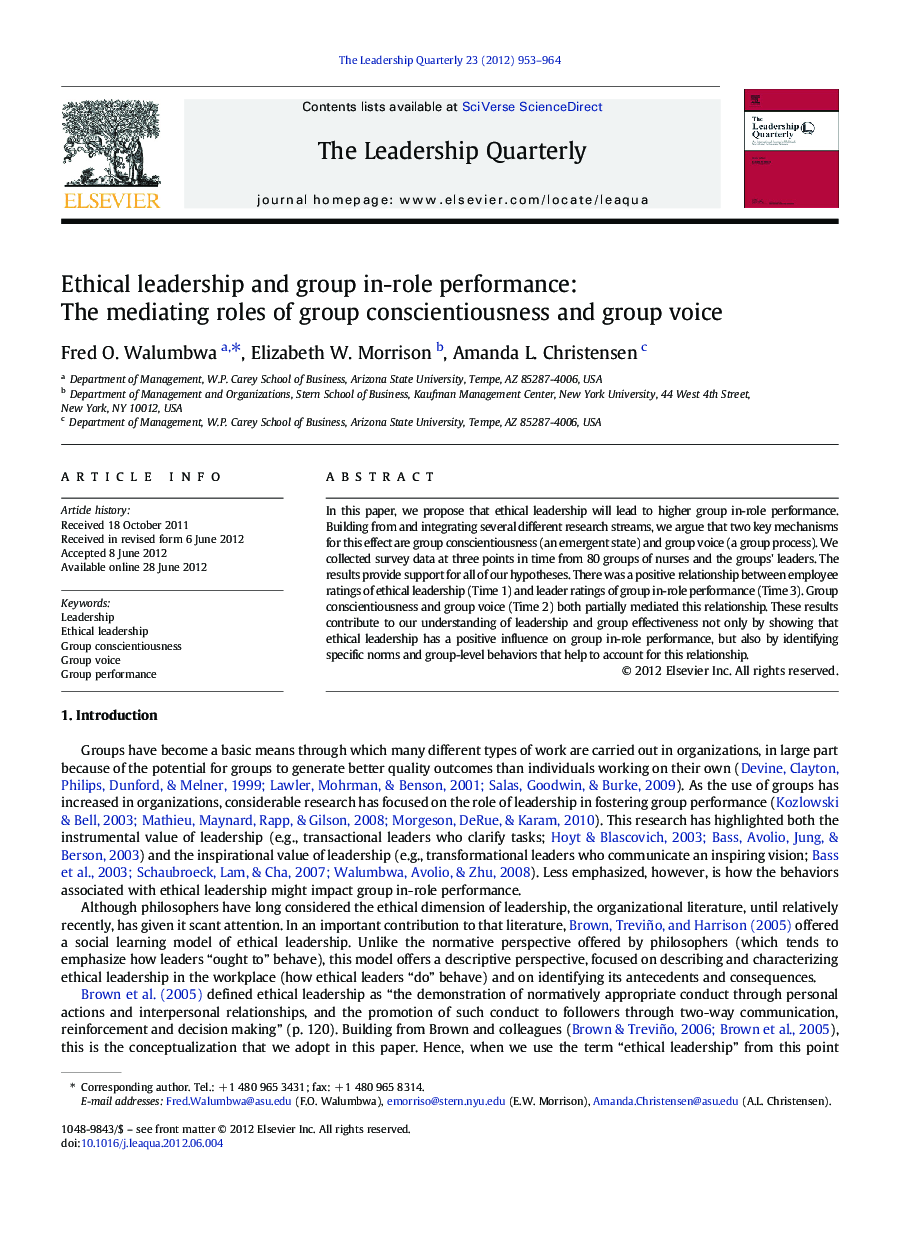| Article ID | Journal | Published Year | Pages | File Type |
|---|---|---|---|---|
| 887986 | The Leadership Quarterly | 2012 | 12 Pages |
In this paper, we propose that ethical leadership will lead to higher group in-role performance. Building from and integrating several different research streams, we argue that two key mechanisms for this effect are group conscientiousness (an emergent state) and group voice (a group process). We collected survey data at three points in time from 80 groups of nurses and the groups' leaders. The results provide support for all of our hypotheses. There was a positive relationship between employee ratings of ethical leadership (Time 1) and leader ratings of group in-role performance (Time 3). Group conscientiousness and group voice (Time 2) both partially mediated this relationship. These results contribute to our understanding of leadership and group effectiveness not only by showing that ethical leadership has a positive influence on group in-role performance, but also by identifying specific norms and group-level behaviors that help to account for this relationship.
